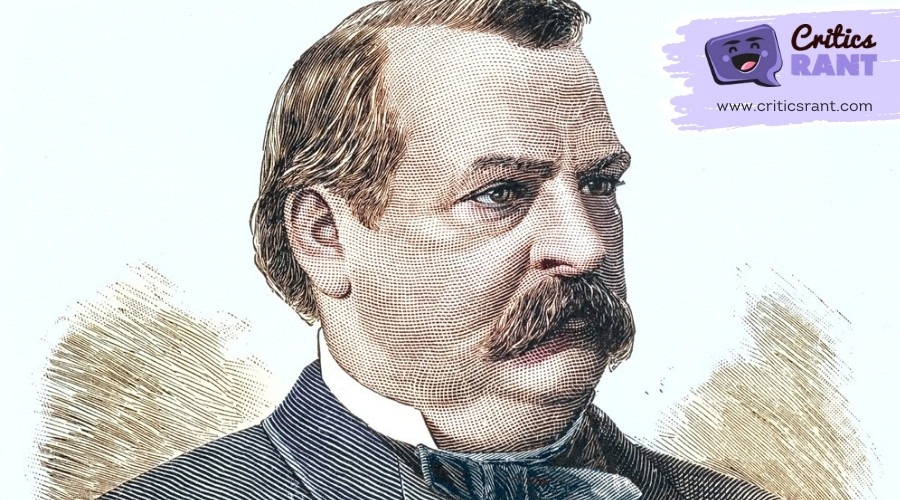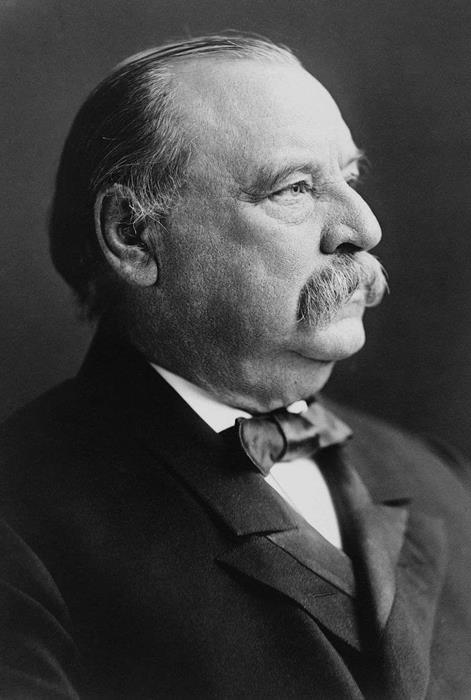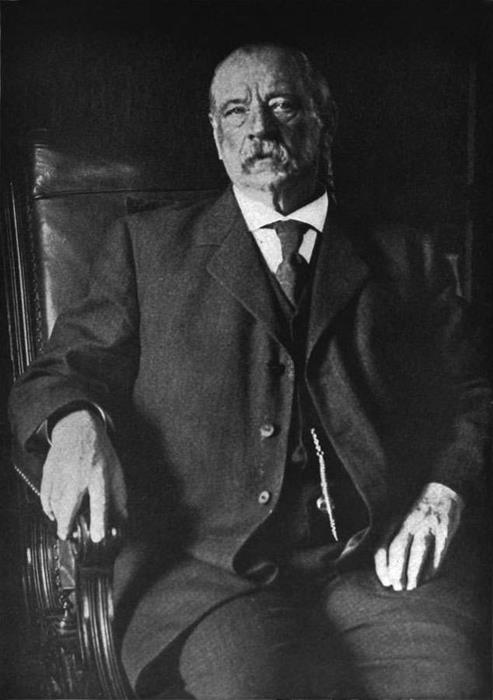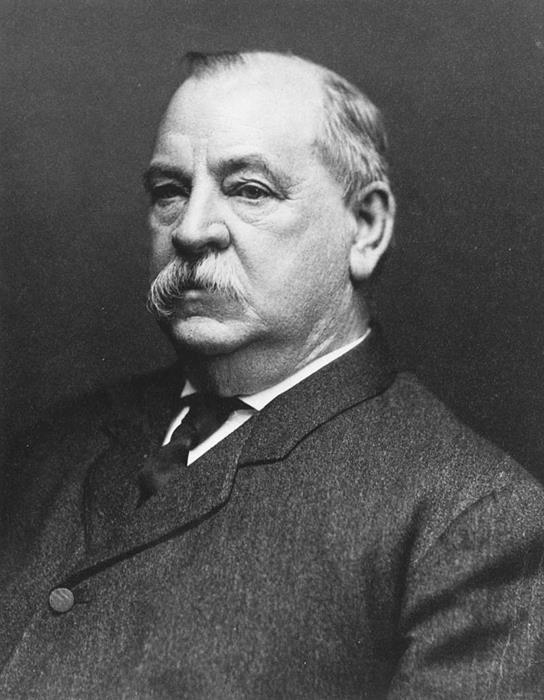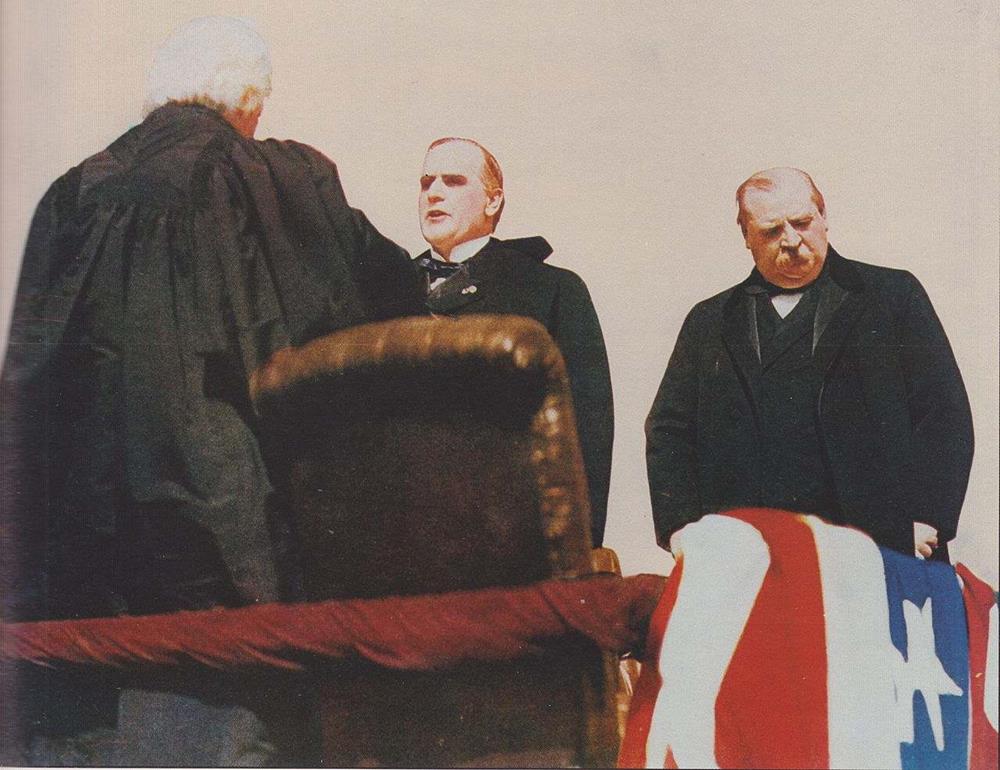Grover Cleveland remains a unique figure in American political history, not only for serving two non-consecutive terms as the 22nd and 24th President of the United States but also for his distinctive personality traits that influenced his leadership and decision-making processes. Known for his forthright approach and a demeanor that combined patience with an iron will, Cleveland’s personality shaped his presidency and left a lasting impact on U.S. governance during the late 19th century.
This article explores various facets of Cleveland’s personality, from his commitment and reliability to his stubbornness and emotional reserve, offering insights into how these traits affected both his public policies and private interactions. Understanding Clevelands character provides a deeper appreciation of his contributions and challenges as a leader, shedding light on a presidency that navigated complex times in American history.
Dedicated and Strong Willed
Grover Cleveland’s tenure as President of the United States was significantly marked by his unwavering dedication and strong-willed approach. These traits not only defined his political ideology but also influenced the major decisions of his administration. Clevelands presidency is a case study of how personal determination can manifest in public governance.
Manifestations of Dedication
Cleveland’s commitment to his duties was evident through several key actions:
- Veto Power: He made extensive use of his veto power to block legislation that he deemed frivolous or corrupt. This included the infamous veto of the Texas Seed Bill, where he argued that the government should not be responsible for individual financial assistance, underscoring his belief in limited government and fiscal conservatism.
- Reform Efforts: His dedication to reform was clear in his battle against the pervasive corruption and patronage that characterized the era. He was committed to improving the ethical standards of public service, even when it cost him political support within his own party.
Examples of Strong Will
Cleveland’s strong-willed nature drove him to take unpopular stands, often at significant political risk:
- The Pullman Strike: During the Pullman Strike of 1894, Cleveland’s decision to send federal troops to break up the strike underlined his belief in maintaining law and order, emphasizing the function of the government in ensuring the smooth operation of commerce and mail delivery, despite the massive outcry from labor organizations.
- Monetary Policy: He staunchly supported the gold standard, a position that alienated the silver-supporting factions within his party but illustrated his commitment to what he viewed as economic stability.
Consequences of His Strong Will
While Clevelands dedication and strong will were admirable to many, these traits also had their downsides:
- Political Isolation: His unwillingness to yield in his beliefs or engage in the political bargaining often necessary in Washington led to isolation and frequent clashes with Congress.
- Legislative Stalemates: His firmness sometimes resulted in legislative gridlock, as he would not compromise on issues he felt were matters of principle, affecting his ability to effectively govern during turbulent times.
Grover Clevelands dedication and strong will shaped his presidency in profound ways. These characteristics brought about significant reforms but also exemplified the challenges of a rigid approach to leadership.
Direct, Patient, and Reliable
Grover Cleveland’s tenure as President was characterized by a leadership style that blended directness, patience, and reliability. These attributes not only defined his personal interactions but also shaped his administrative and policy-making efforts, setting a tone of steady governance during his terms.
Directness in Communication
Cleveland was known for his straightforward and candid communication style:
- Clear Policy Positions: He was explicit about his positions, leaving little room for ambiguity, which helped the public and Congress understand where he stood on critical issues, such as tariff reform and monetary policy.
- Public Addresses and Writings: His speeches and written communications were clear and to the point, often addressing complex issues in a manner accessible to the general populace.
Patience in Governance
Despite the pressures of office, Cleveland demonstrated considerable patience, a quality that was essential in navigating the slow-moving gears of government:
- Handling of the Economic Crisis: During the Panic of 1893, Cleveland showed patience by carefully considering all options before repealing the Sherman Silver Purchase Act, believing steady, thoughtful action was crucial to economic recovery.
- Judicial Appointments: He took his time with appointments, especially in judicial positions, to ensure that his choices were well-considered and based on merit rather than political expedience.
Reliability as a Leader
Cleveland’s reliability was one of his most appreciated virtues, particularly in his consistent adherence to his principles:
- Consistent Policy Enforcement: Whether it was his non-interference in the economy or his stance on foreign policy neutrality, Cleveland’s consistent policy enforcement made him a predictable and, thus, reliable leader.
- Dependability in Crisis: His handling of various crises, from economic downturns to domestic unrest, reinforced his image as a dependable leader who could be trusted to act in the nation’s best interest without succumbing to popular pressures.
Impact of His Direct, Patient, and Reliable Nature
These traits combined to form a presidency that, while sometimes controversial, generally conveyed a sense of stable and rational governance:
- Trust Among the Public: His directness and reliability in policy-making fostered a level of trust among the public, which was crucial during times of economic difficulty.
- Legislative Challenges: While his patience was an asset in thoughtful policymaking, it sometimes resulted in frustrations in the legislative process, where more immediate actions were often necessary.
By consistently applying these traits, he maintained a level of integrity and trustworthiness that, despite various challenges and criticisms, left a lasting imprint on the American presidency.
Excellent Organizer
Grover Cleveland’s tenure as President showcased not only his political acumen but also his exceptional organizational skills. These abilities were crucial in managing the complexities of the federal government and in implementing effective policies during his administration.
Strategic Planning and Administration
Cleveland’s organizational prowess was evident in several key aspects of his presidency:
- Efficient Cabinet Management: He was meticulous in selecting his Cabinet, choosing individuals based on competence rather than political loyalty, ensuring a well-organized and effective executive branch.
- Systematic Approach to Governance: His methodical nature influenced the structure and procedures of the White House, promoting efficiency and accountability within his administration.
Policy Implementation
His ability to organize extended beyond personnel management to the realm of policy enactment:
- Reform Initiatives: Cleveland was instrumental in major reform initiatives, such as the Interstate Commerce Commission and civil service reform, demonstrating his capacity to organize and implement complex regulatory frameworks.
- Budget Management: He was known for his careful scrutiny of federal expenditures, vetoing wasteful appropriations, and organizing the governments budget to reflect fiscal responsibility.
Handling of Documentation and Records
Cleveland’s attention to detail was also apparent in his handling of official documents and records:
- Vigilant Record-Keeping: His administration was known for meticulous documentation, which helped in maintaining transparency and order in governmental affairs.
- Presidential Veto Messages: His well-organized and clearly articulated veto messages set a standard for presidential communication, serving as detailed records of his policy positions and rationales.
Challenges Overcome Through Organization
The effectiveness of Cleveland’s organizational skills was tested through various challenges:
- Economic and Social Issues: During the economic downturns and social unrest of his terms, Clevelands organized response helped to stabilize and guide the nation through turbulent times.
- Legislative Processes: His systematic approach often facilitated smoother interactions with Congress, although his meticulous nature sometimes slowed the legislative process when details were contested.
His ability to plan strategically, manage personnel, and implement policies not only enhanced the operations of the executive branch but also left a legacy of efficient and accountable governance.
Stubborn and Inflexible
While Grover Clevelands presidency was marked by many positive traits, his stubbornness and inflexibility often emerged as significant challenges. These characteristics, while underscoring his commitment to principles, occasionally hindered his ability to adapt to changing political landscapes and to foster cooperative relationships with Congress and within his own party.
Manifestations of Stubbornness
Cleveland’s stubborn nature was apparent in several key aspects of his leadership:
- Unyielding Policy Decisions: Cleveland often took firm stands, notably on issues like the gold standard and tariff reform, refusing to sway even in the face of significant opposition or alternative suggestions from his advisors and allies.
- Veto Use: His record number of vetoes is a testament to his unyielding nature, as he frequently used his veto power to block legislation that did not meet his stringent criteria for fiscal responsibility or ethical governance.
Examples of Inflexibility
Cleveland’s inflexibility manifested in ways that affected both his presidency and his relationships:
- Interactions with Congress: His rigid approach often led to clashes with Congress, particularly when he refused to engage in the customary political bargaining necessary to pass legislation. This inflexibility sometimes resulted in legislative gridlock and damaged relationships with legislators.
- Handling of the Silver Issue: During the debates over the gold standard and silver coinage, Clevelands refusal to compromise with the pro-silver faction within his own party led to a deep rift, affecting his support and undermining his legislative agenda.
Impact of His Stubborn and Inflexible Nature
The implications of Cleveland’s stubbornness and inflexibility were mixed:
- Policy Consistency: On the one hand, his steadfast nature ensured policy consistency and reinforced his image as a principled leader, earning him respect from like-minded constituents and historians.
- Political Isolation: On the other hand, his inability to be flexible resulted in political isolation and a failure to adapt to changing circumstances, which could have mitigated some of the economic and social turmoil during his terms.
Grover Clevelands stubbornness and inflexibility illustrate the complexities of presidential leadership. While these traits helped maintain a clear and consistent policy direction, they also limited his effectiveness in dealing with a dynamic political environment.
Judgmental and Focused on Social Status
Grover Cleveland’s presidency was not only defined by his political decisions but also by his personal views, which were often seen as judgmental and heavily influenced by social status. These traits shaped his interactions with both political allies and the general public, impacting his policies and his public persona.
Evidence of Judgmental Nature
Cleveland’s judgmental attitude manifested in several ways:
- Personal and Political Judgments: He often made decisions about appointments and policies based on personal judgments of character and morality, which some saw as an overly moralistic approach to governance.
- Critiques of Opponents: His public and private communications sometimes included harsh critiques of those he saw as ethically or morally inferior, reflecting his strong opinions on personal conduct.
Focus on Social Status
Cleveland’s attention to social status influenced his presidency significantly:
- Elite Associations: He was known to favor individuals from certain social strata for appointments and consultations, often preferring those he perceived as socially or intellectually superior.
- Policy Impact: This focus on social status could be seen in his policy decisions as well, where he sometimes favored economic policies that benefited the upper classes, such as his staunch support for the gold standard, which many argued favored bankers and industrialists over farmers and laborers.
Implications of These Traits
The impact of Cleveland’s judgmental nature and focus on social status was mixed:
- Influence on Administration: These traits helped him maintain a morally strict and socially elite administration, but they also alienated broader segments of the population, particularly those affected adversely by his economic policies.
- Effect on Public Image: While some admired his commitment to ethical governance and high standards, others viewed him as out of touch with the common man, contributing to a mixed legacy.
Challenges Faced Due to His Attitude
Cleveland’s judgmental attitude and elitist tendencies presented several challenges:
- Alienation of the Working Class: His policies and attitudes sometimes alienated working-class Americans, who felt that he was disconnected from their everyday struggles, particularly during economic downturns.
- Party Divisions: Within his own party, these traits exacerbated divisions, especially between the gold and silver factions, leading to significant political consequences and a weakened party unity.
While these traits reinforced his image as a principled and morally upright leader, they also limited his appeal and effectiveness in addressing the diverse needs of a rapidly changing America.
Hard to Express Emotions
Grover Cleveland’s presidency was characterized not just by his political policies but also by his personal demeanor, notably his difficulty in expressing emotions. This emotional reserve shaped his relationships and interactions both in public and private spheres, influencing his leadership style and public perception.
Nature of Cleveland’s Emotional Expression
Cleveland was known for his stoic and reserved nature:
- Public Demeanor: He often appeared stern and unemotional in public appearances and speeches, which made him seem formidable and serious but sometimes inaccessible to the public.
- Private Interactions: Even in private, Cleveland was not prone to overt displays of emotion, preferring to keep his personal feelings and struggles out of the public eye and rarely showing vulnerability.
Impact on Leadership and Communication
Cleveland’s emotional reserve had significant implications for his presidency:
- Perception of Strength: His stoic demeanor was often interpreted as a sign of strength and reliability, which was valued in a leader during the turbulent economic times of his presidency.
- Challenges in Relatability: On the downside, his inability to openly express emotions could make him seem distant or uncaring, particularly to those who suffered during economic downturns and sought a more empathetic figure in leadership.
Influence on Personal and Professional Relationships
His difficulty with emotional expression also affected his personal and professional relationships:
- Interactions with Staff and Politicians: Cleveland’s reserved nature sometimes made it difficult for aides and political allies to gauge his reactions and feelings, which could complicate communications and decision-making processes.
- Public Relations: The public sometimes perceived him as aloof or cold, which affected his popularity and the way his policies were received, particularly those that involved social welfare and labor issues.
Consequences of Emotional Reserve
The emotional reserve that Cleveland maintained had mixed outcomes:
- Leadership During Crises: His calm and unemotional facade provided a sense of stability during crises, such as the Panic of 1893, but it also meant that his responses to public suffering could seem inadequate or lacking in compassion.
- Legacy and Historical Perception: Historians and biographers have noted that Cleveland’s emotional reserve makes it difficult to fully understand his motivations and personal views, leading to a range of interpretations about his character and presidency.
Grover Cleveland’s difficulty in expressing emotions played a complex role in his administration and legacy. While it contributed to a persona of steadfastness and dependability, it also created barriers to personal connectivity and empathy, aspects increasingly valued by political leaders.
Conclusion
Grover Cleveland’s personality traits—ranging from his strong will and dedication to his emotional reserve—played pivotal roles in shaping his presidency and legacy. While his directness, reliability, and organizational skills earned him respect, his stubbornness, judgmental nature, and difficulty expressing emotions often alienated others and complicated his leadership.
Cleveland’s tenure offers valuable lessons on the importance of balancing firm principles with flexibility and empathy, which are crucial for effective governance. As we reflect on his presidency, it becomes clear that the complexities of his character mirror the challenges and demands of leadership itself.
US Presidents | ||

